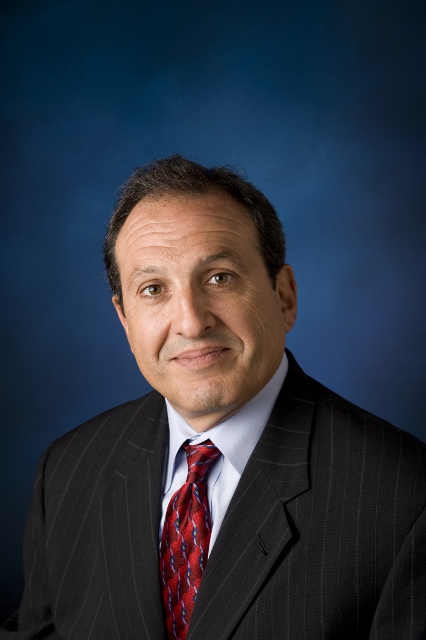In collaboration with CHIME, Becker's Hospital Review'snew "Life of a Healthcare CIO" series features leading hospital and health system CIOs from across the country who are sharing their experiences, best practices and challenges.
To recommend a CIO to be featured in this series, please contact Helen Gregg (hgregg@beckershealthcare.com).
An interview with Roland Garcia, senior vice president and CIO of Baptist Health in Jacksonville, Fla. (Interview has been edited for length and clarity.)
Question: You've been CIO of Baptist Health for 12 years. How has your job changed since you began?
Roland Garcia: In terms of operational basics, the job hasn't changed much during the past 12 years. What has changed significantly is finding the right opportunities to support Baptist's initiatives with technology.
Q: In your time with Baptist Health, what has been your biggest accomplishment?
RG: We successfully opened a new hospital with a comprehensive electronic medical record system on Feb. 15, 2005. This was before the big wave of EMR implementations and the regulatory requirements for EMRs, so being "fully digital" at that time was a major accomplishment.
Q: What do you see as your biggest misstep or mistake?
RG: We are good at taking core solutions and enhancing them to meet our needs, but we are not as experienced in developing our own solutions. On a couple of occasions when we have ventured into real, hardcore development — even though we had the right vision — we weren't structured to support it effectively.
One example in this regard occurred before the meaningful use stage 2 requirements were defined. We had a concept for an enterprise patient portal that would bridge the disparate EMRs in our physician practices and hospitals to allow any patient engaging with us online to have a consolidated and coordinated experience. That turned out to be a more difficult task than we imagined. Moving forward, we are learning to establish detailed requirements before moving to development.
Q: Looking back over the past month, what has taken up the majority of your time?
RG: In the area of technology, it's been the continued improvement of interoperability capabilities, the maturity of our private health information exchange and preparing for the technology infrastructure required for the clinically integrated network that is being formed with the medical staff. The network will introduce a number of different technical solutions that are unlike anything we've typically supported in the hospital system.
Q: What is the biggest challenge you're facing right now?
RG: Our biggest challenge is balancing new opportunities and regulatory requirements while supporting the whole system on a daily basis. Because everything is in such a compressed timeframe, it creates challenges around priorities and resource allocation.
Some of the initiatives we're managing represent a significant change to the way we do business, and there will be significant workflow impacts to physicians and other clinicians. An example is meaningful use stage 2, where we're introducing patient engagement with technology that's not necessarily mature. At the same time, we're preparing the organization for ICD-10, where the challenge is not only the technology, but also how it impacts those who rely on the technology to do their jobs.
Q: What is one lesson you've learned during your tenure you'd like to share with other CIOs?
RG: We need to bring clinicians to the table more often to be part of the decision-making process up front. This is critical when developing clinical technology. Our clinicians need to help us make informed decisions about what technology to deploy and when to deploy it, because it impacts their workflow.
More Articles in the Life of a Healthcare CIO Series:
The Life of a Healthcare CIO: Mount Sinai Health System's Kumar Chatani
The Life of a Healthcare CIO: Spectrum Health's Patrick O'Hare
The Life of a Healthcare CIO: OSU Wexner Medical Center's Phyllis Teater

